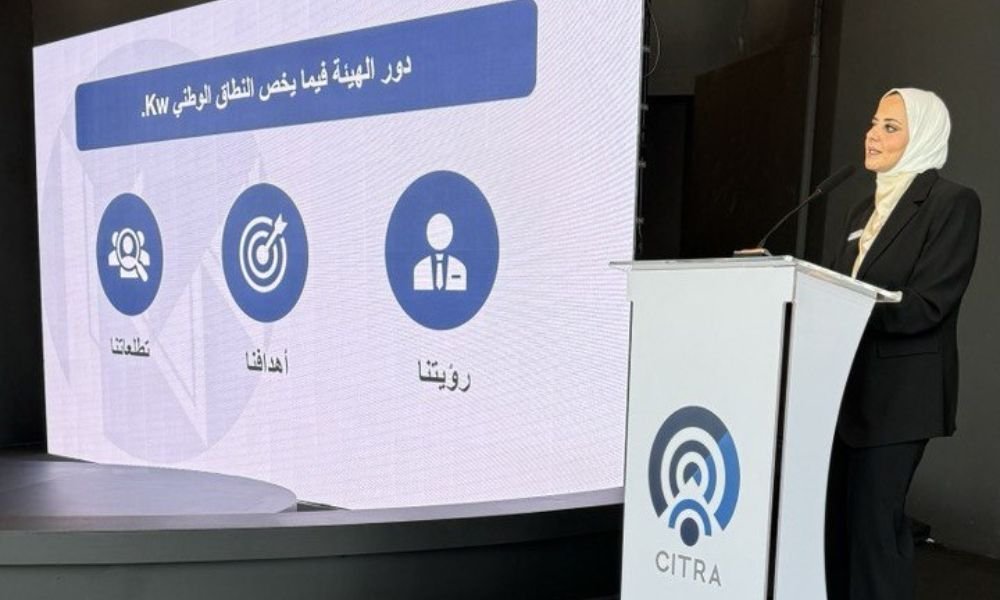Kuwait’s Communications and Information Technology Regulatory Authority (CITRA) is setting the stage for a transformative shift in the way telecom services are distributed across the country. In a bold move to standardize practices, boost transparency, and protect end users, CITRA has proposed a comprehensive regulatory framework that will directly impact service distributors—those who act as intermediaries between major telecom providers and consumers.
The proposed regulations come at a critical moment for Kuwait’s growing digital economy. With 5G rollouts expanding, data consumption rising, and new players entering the telecom space, a clear set of rules could help maintain quality, reduce confusion, and ensure fairness in the sector.
Let’s explore what these new regulations mean, why they matter, and how they will shape the future of telecom distribution in Kuwait.

What Are Telecom Distributors and Why Regulate Them?
Telecom distributors act as the operational link between licensed telecom operators—such as Zain, Ooredoo, and STC—and consumers. They handle product sales, SIM card distribution, top-ups, device bundling, and even customer support in some cases.
In recent years, a lack of cohesive regulations has led to inconsistent service levels, grey-market activities, and unclear accountability. By introducing a formal structure, CITRA aims to ensure that every distributor operates with the same level of professionalism, legal responsibility, and customer focus.

Key Highlights of CITRA’s Regulatory Framework
1. New Licensing System
One of the most significant changes will be the introduction of a mandatory licensing scheme for all telecom distributors operating in Kuwait. This is not a symbolic gesture—distributors will need to prove their financial health, technical capability, and operational integrity to qualify.
Applicants will need to submit documentation detailing:
- Company ownership and legal structure
- Previous telecom distribution experience
- Security protocols for user data
- Staffing and training qualifications
Once submitted, CITRA pledges to process license applications within 60 working days, offering businesses a clear timeline to plan around.
2. Annual Fees and Financial Guarantees
To raise the bar of commitment, distributors must pay an annual fee based on company size and scope of operations. Additionally, CITRA will require a bank guarantee from each license holder—creating a financial safety net that can be drawn upon in case of contractual breaches or consumer compensation needs.
This dual approach ensures that only serious players with a vested interest in the telecom sector are allowed to operate.
3. Compliance with Technical and Ethical Standards
Distributors will be expected to install and maintain content-blocking systems to prevent users from accessing unlawful or unauthorized content. This includes filtering mechanisms and network protection tools that align with national digital safety goals.
Moreover, distributors will be prohibited from reselling telecom services without explicit authorization. This addresses a loophole that has historically enabled individuals or businesses to act as unofficial resellers, often with little accountability.
In addition, any attempt to link national telecom infrastructure with international networks—such as satellite lines or foreign VPNs—will now require prior written approval from CITRA.
4. Enforcement and Audit Mechanisms
Once licensed, distributors will be subject to regular audits and inspections by CITRA. These could be both scheduled and unannounced. Failure to comply with regulatory standards may result in penalties, license suspension, or permanent revocation.
To encourage compliance, CITRA plans to issue guidance materials, host informational workshops, and provide direct consultation channels to help distributors align their processes.
A Win-Win for All Stakeholders

For Distributors:
These regulations offer a legitimate opportunity for growth. Licensed distributors can benefit from increased consumer trust, smoother partnerships with telecom operators, and eligibility for future digital infrastructure programs.
For Telecom Operators:
A standardized distribution environment makes it easier for operators to manage third-party vendors. The new rules help maintain consistency in customer experience, pricing, and branding—critical elements in today’s competitive telecom landscape.
For Consumers:
Perhaps the biggest winners are end users. With the introduction of structured oversight, consumers can expect better service quality, fewer fraudulent activities, and more transparency in their dealings with retailers and resellers.
Alignment with Kuwait Vision 2035
CITRA’s regulatory push is not happening in isolation. It’s part of a larger national strategy: Kuwait Vision 2035. This vision seeks to transform Kuwait into a regional digital leader by investing in infrastructure, encouraging private-sector innovation, and enabling a knowledge-based economy.
By enforcing clear rules for telecom distributors, CITRA is removing one of the friction points that could hinder this progress. Standardization, when done right, becomes a foundation for innovation—not a barrier to it.
Possible Challenges on the Horizon
While the initiative is widely welcomed, several hurdles remain:
1. Small Business Readiness:
Smaller distributors may find it difficult to meet financial guarantees or technical compliance demands. Without support, this could create a market imbalance favoring larger players.
2. Clarity in Enforcement:
The interpretation of certain rules—especially those related to reselling and infrastructure connections—may vary. CITRA will need to provide detailed guidelines to avoid confusion and ensure consistent enforcement.
3. Transition Timeline:
Existing distributors will need time to update their practices, install new systems, and potentially restructure operations. A realistic implementation window will be crucial to avoid disruptions.
What’s Next?

CITRA is currently finalizing the draft version of the regulations. Industry feedback has been solicited, and a public review is underway. Once finalized, the authority will publish the full set of rules on its official website and notify all stakeholders.
It’s expected that current distributors will be given a transition period to apply for licensing and bring their operations into alignment. During this period, CITRA will offer guidance and onboarding support to ease the transition.
The regulator also intends to launch a digital portal where distributors can submit applications, pay fees, and track compliance requirements in real time—a move that complements Kuwait’s growing focus on e-governance.
Final Thoughts
CITRA’s bold regulatory vision marks a defining moment for Kuwait’s telecom sector. By formalizing distributor operations, the authority is creating a fairer, safer, and more efficient marketplace for both businesses and consumers.
What may seem like a dry regulatory announcement today could, in time, become the backbone of a thriving, future-ready digital economy. One where trust, quality, and innovation aren’t aspirations—they’re expectations.
Do follow UAE Stories on Instagram
Read More: Creative Media Authority Signs $15M Partnership with NG9 Holding












